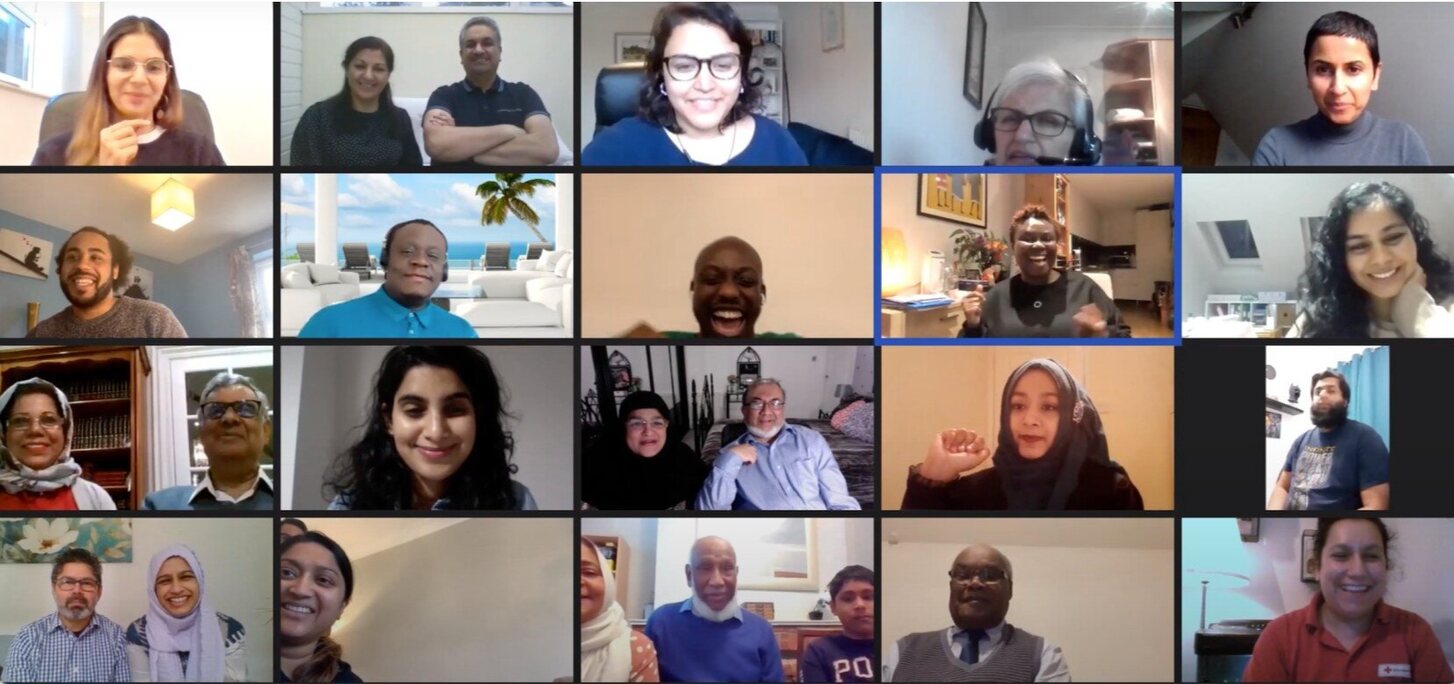HAVING CONVERSATIONS with family members about vaccine hesitancy could be the key to improving vaccine take up in the black, Asian and minority ethnic (BAME) community.
The British Red Cross have released a new film showing families discussing the vaccine and have published new research to help dispel myths and encourage people to take part in the vaccination programme.
The findings revealed that black and minority ethnic Britons are nearly twice as likely to get information on the COVID-19 vaccine from their friends and family. More than 30% of them do compared to the national average of 14%.
Ethnic minority communities are also more inclined to trust information they get from blood relatives rather than from a health professional or any other source, the poll suggested.
As vaccine hesitancy remains high among certain ethnic minority groups, the data also revealed that these groups are 62% more likely to have seen or heard information encouraging them not to have the vaccine in comparison to a national average of 14%.
The British Red Cross encourages conversations between family members that could “save lives,” however, they urge that the information shared is factual and up to date.
Professor Geeta Nargund, Vice-Chair of the British Red Cross and senior NHS consultant said: “As a doctor, I know how important it is to reassure patients about the COVID-19 vaccine and address any concerns and hesitations they might have. Many people simply want to talk it through and also check if some of the information they have seen is accurate,” she said.
“Unfortunately, we know that people from BAME communities are far more likely to have received misinformation encouraging them not to have the vaccine.
“Critically, and especially for people from BAME communities, your family is also likely to play a big part in the decision to have the vaccine. The British Red Cross wants to equip people with accurate information so people can have kind, informed conversations with their family about the vaccine, based on fact not fiction.”
Research also found that outright refusal to take the vaccine is highest among those from Black African (31%), Caribbean (46%) and Pakistani (25%) backgrounds. Of those surveyed, 57% of people are most concerned about side effects, while 36% are worried about how quickly the vaccine was produced and 34% are concerned about the ingredients.
Eugene, 28, from Essex, who features in the Red Cross film talking to his nana, expresses his concerns about getting the jab.
“I don’t think I would say yes if they asked me tomorrow. Everything about how the vaccine came to be just seemed a bit fast for my liking,” he admits.
But after talking through his concerns, as shown in the film, his attitude towards the vaccine changes.
“It’s made me think about things I wasn’t considering before – like how what I do will impact on those around me.
“I’m very much of the opinion that people need to do their own research - you shouldn’t be influenced by scaremongering. Reach out to people who are in the know and make your own decision.
“I’ve gone from a no, to actually yeah I think I would take it,” he said.
The Red Cross campaign will be run throughout the UK and hopes to encourage families to look after each other.
Professor Nargurd said: “When it comes to family, a key thing to remember is that by taking the vaccine, you are not only protecting yourself but also saving the lives of your loved ones. Having informed conversations about the vaccine is a kind thing to do, that saves lives.”
To find out more about the British Red Cross highlighting vaccine information in ethnic minority communities, visit British Red Cross.


Comments Form